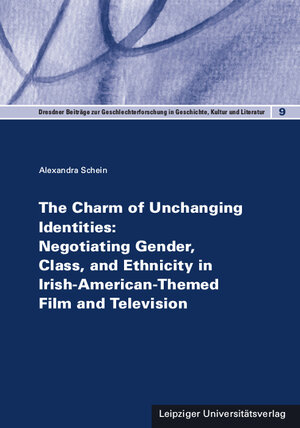The Charm of Unchanging Identities: Negotiating Gender, Class, and Ethnicity in Irish-American-Themed Film and Television
von Alexandra ScheinThis study is invested with the cultural work of Irishness in US-American popular culture. It is the first to offer as broad of a survey of Irish-American-themed cinema and television as 72 films and 11 television series, ranging from relatively unknown independent productions to box office hits such as The Departed. Thereby, several clusters of negotiating Irishness are identified and illustrated by zooming in at paradigmatic texts. Schein combines approaches from social psychology, gender and cultural studies to illustrate the discursive construction of Irishness and reveal the intersectional character of identifications. Irish-American identity on screen is inextricably connected to discourses on ethnicity, class, race and, most importantly, gender since it proves to be almost exclusively associated with male experience. The book contributes new insights into the workings of popular culture by critically interrogating these constructions of Irishness and exposing its appropriation in engaging contentious issues in US-American culture. The analysis reveals that Irish liminality enables the envisioning of a more innocent version of citizenship and facilitates the reaffirmation of traditional gender roles and identities. Irish-American-themed movies and television shows thus counteract a deconstruction or undoing of gender and ethnicity in the wake of postmodern and poststructural unrest and evince the tenacity and public currency of essentialist identifications.
This book was awarded the „Förderpreis der Dresdner Beiträge zur Geschlechterforschung“ by the GenderConceptGroup (TU Dresden).
This book was awarded the „Förderpreis der Dresdner Beiträge zur Geschlechterforschung“ by the GenderConceptGroup (TU Dresden).






